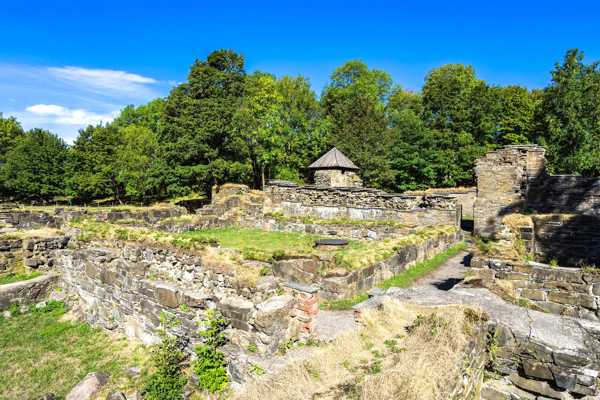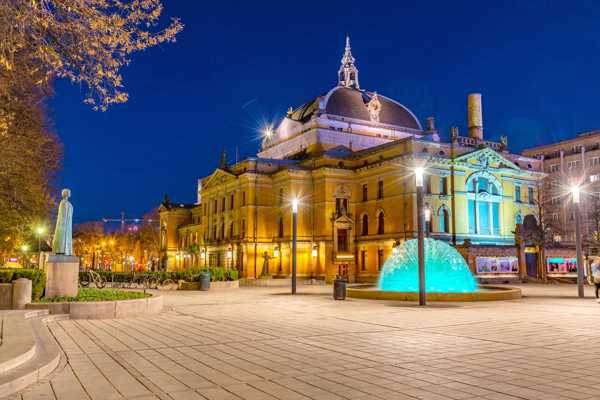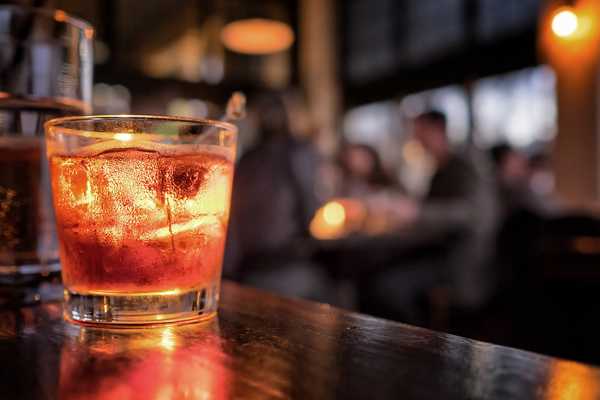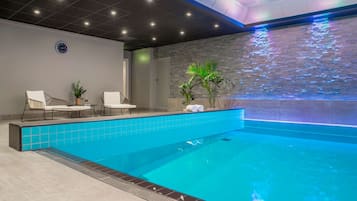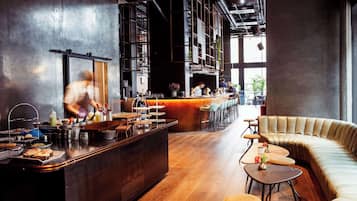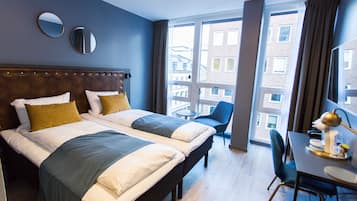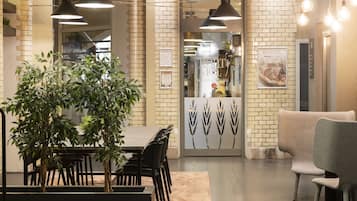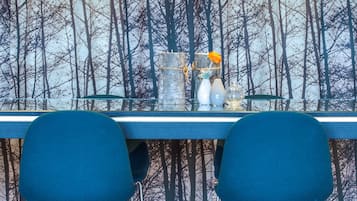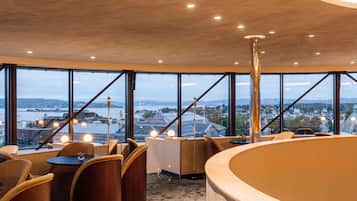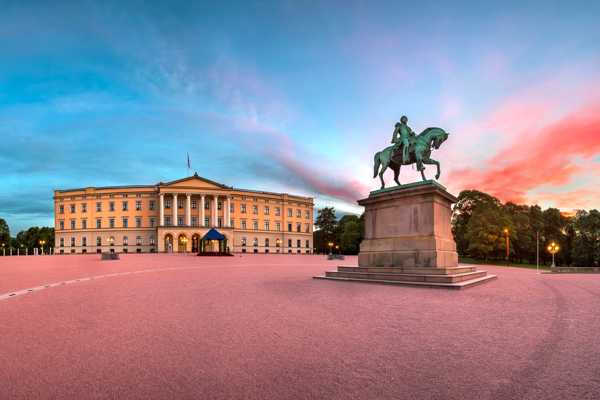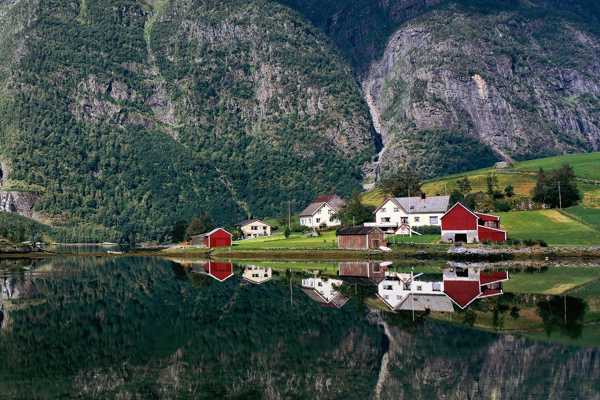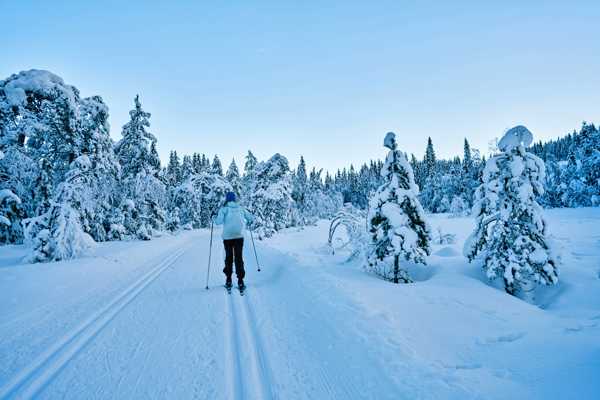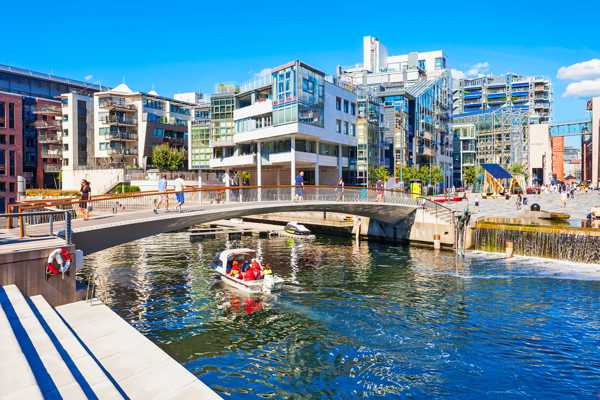Oslo's nearest neighbour is the fjord, and the area's islands are beautiful and popular places to visit. A short trip by boats that are part of Oslo's public transport system, takes you to landscapes that feel much farther from the city streets than they actually are as the crow flies.
Some of the islands are densely populated with cabins, others have clear traces of an industrial society, while others are more or less untouched. Common to them all is a wonderful sense of proximity to the fjord landscape and the sea. The Oslo fjord climate has a rich fauna and excellent bathing conditions in summer - as well as some wonderful outdoor experiences all year round.
- 1
Hovedøya
History, Culture and Idyllic Bathing Spot Outside Vippetangen
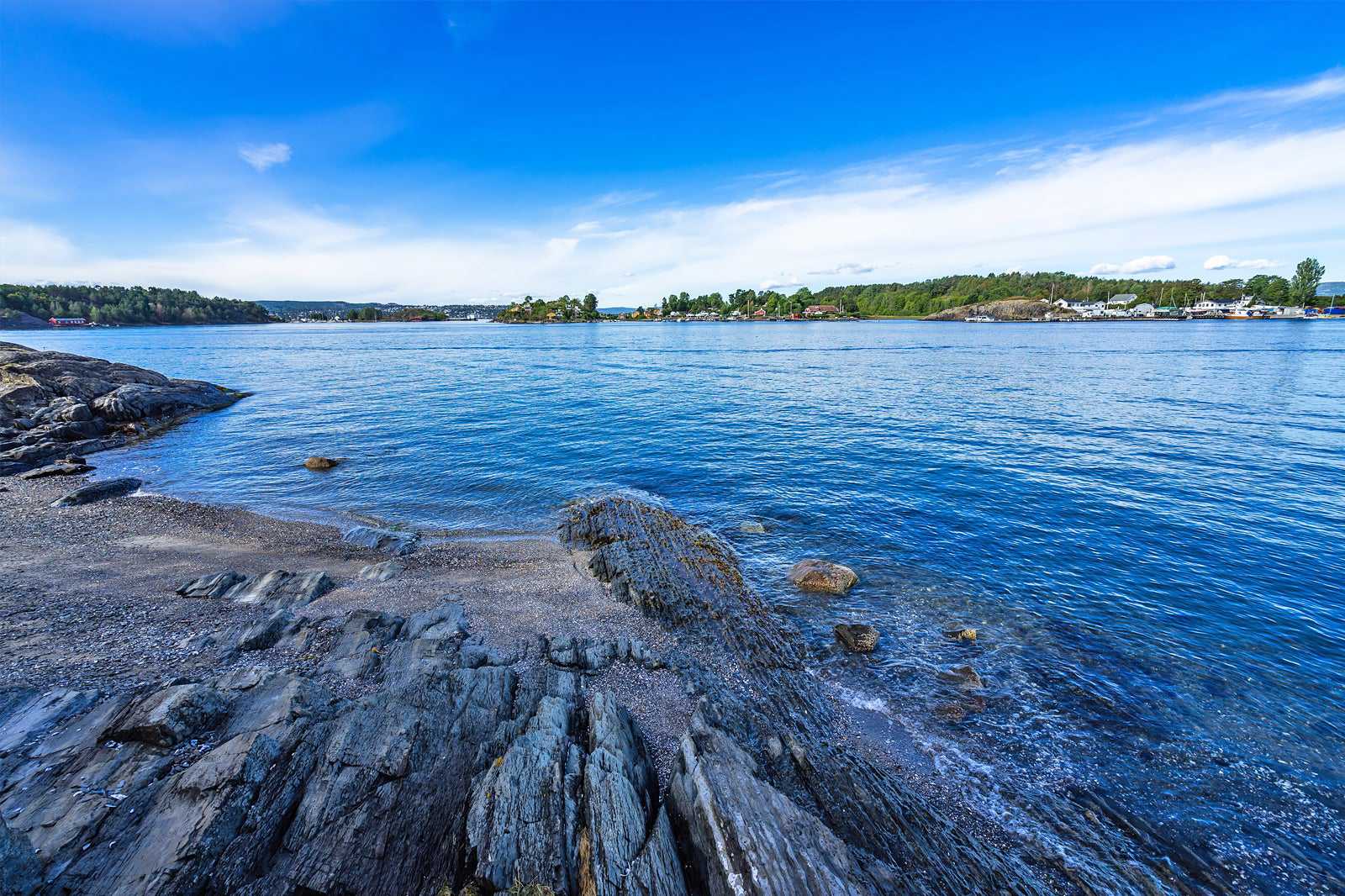
- Budget
- Families
Hovedøya is the innermost of the islands in the Oslo Fjord, municipally owned and protected, with historical ruins and idyllic nature. It is only eight minutes by boat from the mainland, with a good boat connection from Rådhusbrygge 4, and is thus a quick and easy destination for a short excursion.
The local climate and soil provide an exceptionally rich and varied flora that helps create an idyllic and scenic landscape. Central to the island are the ruins of a monastery, founded in 1147 by British monks. Only the walls remain, but they have a historical buzz about them and are fun to explore and play hide and seek in. The island also has a cannon battery and other military historical facilities - as well as a nice beach in the far south.
Location: Hovedøya, 0150 Oslo, Norway
Map - 2
Lindøya
Cabins and Nature in the Inner Oslo Fjord

- Budget
Lindøya is one of the large islands in the inner Oslo Fjord, half of which consists of a cabin field and half with a nature reserve, with a rich plant and animal life. There are two piers with a boat connection to the mainland, one on the east side and one on the west side, and the boat trip takes just under 20 minutes.
A network of paths and roads makes it easy to explore the island. In addition to the small forest, the island also has the occasional bathing spot (unfortunately not very suitable for small children), a simple public toilet, a small shop that is open during the summer season and plenty of cabins - more than on any of the other islands in the Oslo Fjord.
Location: Lindøya, 0150 Oslo, Norway
Map - 3
Ulvøya
Bathing Gem in Bunnefjorden

- Families
Ulvøya is a densely populated island with a bridge connection to the mainland in the district of Nordstrand, which is especially known for the popular seaside resort Sydstranda. Since the bridge was built in 1928, most of the area has gradually filled with residential buildings, so that now around a thousand people live here, about 6 kilometres south of Oslo city centre.
The local welfare association is active and manages the bathing area of Sydstranda, which is one of Oslo's most popular bathing resorts. The charity demands payment for admission and uses the income to manage the well-maintained facilities, where the public can enjoy fjord life and the view of Nesoddtangen. There is a bus stop and grocery store in the middle of the island.
Location: Ulvøya, 0139 Oslo, Norway
Map - 4
Rambergøya
Uninhabited Idyll for Those Who Like Peace, Quiet and Seabirds

- Budget
Rambergøya is a small uninhabited island in the inner Oslo Fjord, connected to Gressholmen and Heggholmen, and with a municipal swimming area and outdoor area. Via Gressholmen there is a good bus connection from Rådhusplassen in the port of Oslo.
The island is part of a nature reserve and is one of the most pristine in the area, with several rare plants and important nesting and grazing areas for seabirds. Restricted car and boat traffic helps to make this a suitable place for those looking for peace and quiet in untouched nature.
Location: Rambergøya, 0150 Oslo, Norway
Mapphoto by Tore Sætre (CC BY-SA 4.0) modified
- 5
Bleikøya
Cabin Island By Oslo Harbour

- Budget
Bleikøya is located right by Hovedøya in the very heart of the Oslo Fjord, and although it is known for its many cabins, it has a beautiful cultural landscape and vast green areas that make it worth a visit. There is a good boat connection with the mainland all year round.
The cabin owners' welfare association ensures that it is kept tidy and pleasant, and several hundred years of history with buildings and farms have created an attractive landscape and vegetation. This is also home to the only farm on the Oslo Islands, Bleikøyplassen. Northeast of the island there is a nature reserve, and you need to be mindful of the bird life here, especially during the breeding season.
Location: Bleikøya, 0150 Oslo, Norway
Map - 6
Heggholmen
Restored Nature on Former Industrial Island

- Budget
Heggholmen is a small island that has been turned into a nature reserve, but which was previously used for industry and also boasts the oldest lighthouse in the inner Oslo Fjord. Holmen is connected to Rambergøya and Gressholmen, where there is a pier with a boat connection to the mainland.
In its time, soap was produced here, and remnants of the small industrial community still exist. You will also find a couple of private cabins and an elegantly restored small wooden lighthouse. Otherwise, the islet consists of boulders, varied vegetation and a maze of paths and small beaches that are good for swimming and enjoying the fjord landscape.
Location: Heggholmen, 0150 Oslo, Norway
Map - 7
Nakholmen
Attractive Cabin Island Outside Bygdøy

- Budget
Nakkholmen is located between Lindøya and Bygdøy on the mainland and is known for its collection of small, colourful cabins nestled close together. A boat connection to Rådhusbrygga and Bygdøy brings you to Nakkholmen in approximately ten minutes.
Despite its small size, there are 200 cabins here in a cabin community that began as a cheap holiday alternative for the working classs, but which is now known for its sky-high price per square metre. Even though it is densely populated, it is accessible to everyone on Nakkholmen and a nice place to enjoy nature and the proximity to the fjord.
Location: 0150 Oslo, Norway
Map - 8
Store Herbern
Small Untouched Island Outside Bygdøy

- Budget
Store Herbern is a small island outside Bygdøy and is completely uninhabited and used as a nature reserve. The hostel is municipally owned and available for public use as a recreation area. To get there you need a private boat or other craft, or you can swim the short distance from the mainland or the neighbouring island of Lille Herbern.
As an almost untouched natural area, Herbern offers rare varied vegetation and biological diversity. Nature lovers will enjoy exploring this islet, which also has some great bathing spots with cliffs and boulders and the occasional small beach.
Location: 0286 Oslo, Norway
Mapphoto by Helge Høifødt (CC BY-SA 3.0) modified
- 9
Gressholmen
Pleasant, wooded Islet in the Inner Oslo Fjord

- Budget
Gressholmen is a state-owned, protected small island with a rich plant and animal life in the inner Oslofjord. Gressholmen was previously used for soap production, as a shooting range, seaplane port and defence facilities. Remains of these activities are still prominent in the landscape and are considered interesting from an industrial historical perspective.
Most visitors are probably most interested in Gressholmen as a nature area. Holmen is connected to the neighbouring islets Rambergøya and Heggholmen with rockfills, and the area is an important habitat for seabirds. There is also a rich plant life and otherwise idyllic fjord landscape that is easily accessible by boat connection from Rådhusbrygga on the mainland.
Location: Gressholmen, 0150 Oslo, Norway
Mapphoto by Helge Høifødt (CC BY-SA 3.0) modified
- 10
Langøyene
From Landfill Site to Bathing Spot
- Budget
- Families
Langøyene consists of two former islands connected by a filled strait, with grasslands and shallow beaches used for swimming. For many years, these long islands served as landfill sites, which consisted of waste covered with gravel and soil masses. A lot of work goes into maintaining Langøyene to make them suitable for outdoor life.
Good boat connections with the mainland, a large, flat grassy plain that is perfect for ball games and play, the opportunity to pitch a tent on your own tent site and Oslo's largest sandy beach all make Langøyene an attractive place to visit and stay. A good accommodation option for groups is the Norwegian Tourist Association's house with 15 beds.
Location: Langøyene, 1450 Nesoddtangen, Norway
Map

